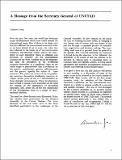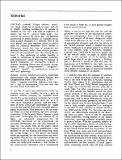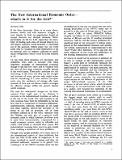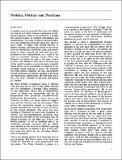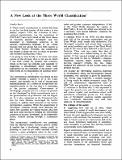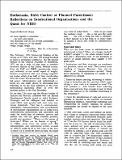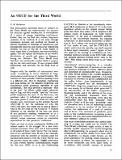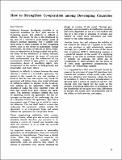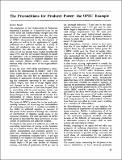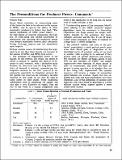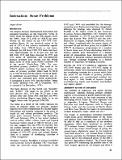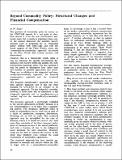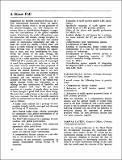Volume 7, Issue 4: UNCTAD: A Fourth Chance?
Browse by
Recent Submissions
-
A Message from the Secretary General of UNCTAD
(Institute of Development Studies, 01/05/1976) -
Editorial
(Institute of Development Studies, 01/05/1976) -
The New International Economic Order— what's in it for the rich?
(Institute of Development Studies, 01/05/1976)SUMMARY Improvement of the international economic order must come from negotiations, not shotgun demands. These are areas of shared interest between the developing and the industrialised countries. The current recession ... -
Policies, Politics and Positions
(Institute of Development Studies, 01/05/1976)SUMMARY British representation at international conferences is usually a matter of a carefully prepared brief worked out by, and presented by, an interdepartmental team of officials, perhaps headed for the first few days ... -
A New Look at the Three World Classification
(Institute of Development Studies, 01/05/1976)SUMMARY ‘Centrally planned’, ‘developed’ and ‘developing’ is not, now, as useful a classification of countries as it was a decade ago when it was believed that developing countries could become rich and modern fairly ... -
Euthenasia, Birth Control or Planned Parenthood: Reflections on International Organisations and the Quest for NIEO
(Institute of Development Studies, 01/05/1976)SUMMARY Various attempts have been made to reconstruct the UN system. Three kinds of institutional development are necessary to further the quest for a New International Economic Order: A permanent secretariat for the ... -
An OECD for the Third World
(Institute of Development Studies, 01/05/1976)SUMMARY Periodic resolution?passing conferences can educate, legitimize, set the stage for, and sometimes stimulate the process of detailed bargaining and consultation which alone can make progress towards improved ... -
How to Strengthen Co?operation among Developing Countries
(Institute of Development Studies, 01/05/1976) -
How to Strengthen Co?operation among Developing Countries
(Institute of Development Studies, 01/05/1976)SUMMARY Solidarity among developing countries is an important condition for the joint exercise of bargaining power. Such solidarity is difficult in the case of producer cartels since the more effective they are, the greater ... -
Notes on Lessons from the Tin Agreement
(Institute of Development Studies, 01/05/1976)SUMMARY The Tin Agreement is generally regarded as successful, but it has basic limitations as recent difficulties have shown. It has been fairly successful in smoothing out short?term fluctuations in the price curve, and ... -
The Preconditions for Producer Power: the OPEC Example
(Institute of Development Studies, 01/05/1976)SUMMARY OPEC's success in raising oil prices has very special ingredients—the high degree of producer dependence, the high cost of stock piling and limited possibilities of substitution or re?cycling, the producers' control ... -
The Preconditions for Producer Power: Comments
(Institute of Development Studies, 01/05/1976)SUMMARY Hanns Maull's preconditions for producer power may be rephrased under three heads producers' oligopolistic power in the market, the countervailing power of consumers, and the producers' degree of political unity. ... -
Indexation: Some Problems
(Institute of Development Studies, 01/05/1976)SUMMARY Indexation and export?earning stabilisation schemes face an overwhelming difficulty—the variety in the trade structures of the developing world. An oil/manufactured goods link would do nothing to guarantee the ... -
Beyond Commodity Policy: Structural Changes and Financial Compensation
(Institute of Development Studies, 01/05/1976)SUMMARY The concentration of recent discussion on Commodity Agreements neglects two other approaches to the reform of trade patterns—the structural approach (shifting the distribution of the gains from trade by changes ... -
A Straw Poll
(Institute of Development Studies, 01/05/1976)

